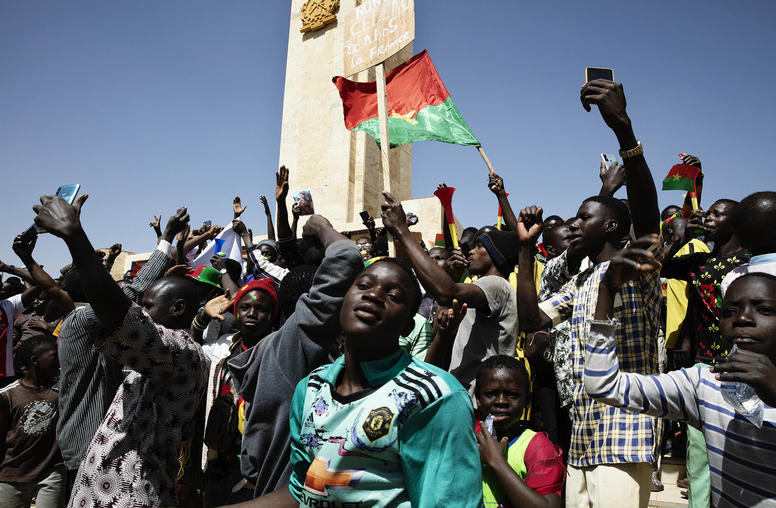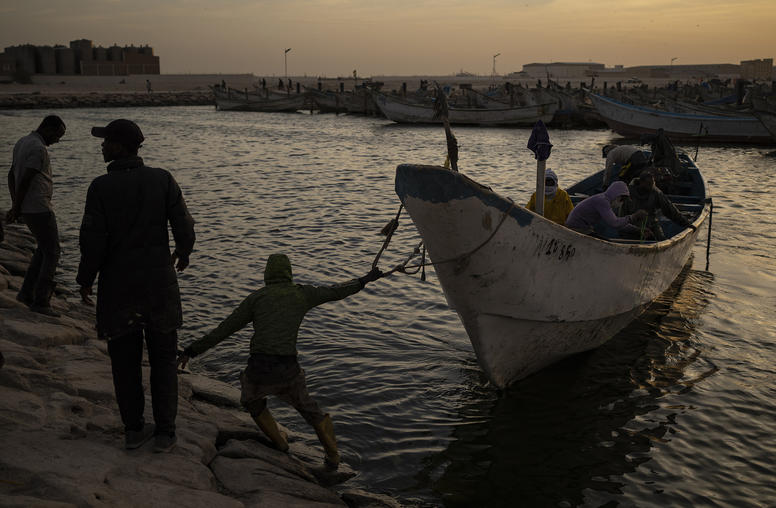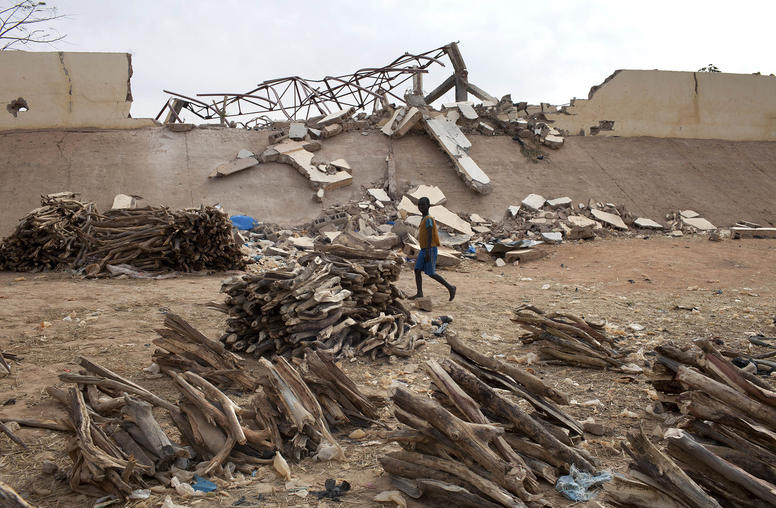Complex Mali Crisis Analyzed at USIP Meeting
The U.S. Institute of Peace (USIP) on December 18 hosted a public meeting, examining the growing instability in Mali: “Crisis in Mali: Causes and Options.”
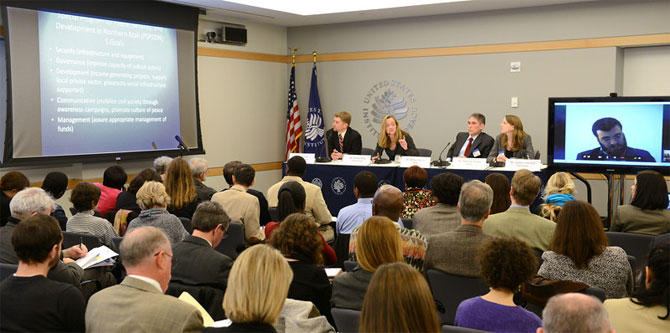
December 21, 2012
An effective response to the deepening crisis in Mali, where rebel groups have seized large swaths of territory in the desert north, may well include the intervention of regional African militaries recently approved by the United Nations Security Council, but it must also include a restoration of democracy in the country and a political process that reaches out to disaffected northerners, a panel of specialists on Mali told an audience gathered at the U.S. Institute of Peace (USIP) on December 18.
The USIP meeting, “The Crisis in Mali: Causes and Options,” examined the interconnected problems of failed governance and military coups in the south and the complex ethnic and clan allegiances and rivalries in the north, which have contributed to Mali’s destabilization and spawned a humanitarian crisis in the north.
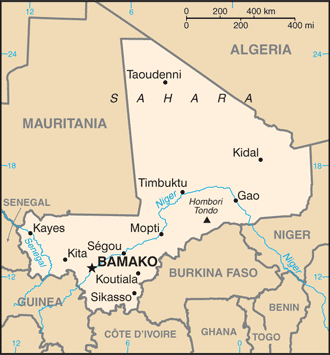
Mali was once an apparent pillar of democracy, but “2012 has changed that,” said Jon Temin, an Africa specialist and director of USIP’s Sudan and South Sudan programs. A military intervention to be carried out by the 15-member Economic Community of West African States (ECOWAS) was approved by the U.N. Security Council on December 20, but questions remain about how to equip, train and pay for the force and what political and diplomatic steps should accompany it. Even as humanitarian and security problems in the north worsen, an outside intervention is considered unlikely until the summer or fall of 2013.
At least four significant rebel or Islamist groups are operating in the north, and sharia law has been harshly applied in some northern towns and villages, with reports of brutal punishments like stoning and amputations inflicted on purported violators. The rebel groups entail a complicated and cross-cutting mix of Tuaregs, Arabs from Mali and elsewhere and people from the Peul and Songhay ethnic/linguistic groups.
One of the four groups is al-Qaida in the Islamic Maghreb, seen as al-Qaida’s affiliate in North Africa. Earlier this month, the top U.S. commander in Africa, General Carter Ham, said publicly that the group is running terrorist training camps in northern Mali and has been collaborating with an extremist Islamist group in northern Nigeria known as Boko Haram. Ham said the groups are tightening their grip on the north and that a “compelling need” had arisen for an African-led response supported by the international community.
The rebel gains followed a March military coup that toppled an elected civilian government and led to a withdrawal of Malian military forces from towns in the north. The military coup leaders continue to exercise significant influence over a weak civilian leadership in the capital Bamako. The prime minister was recently arrested and replaced.
The Mali specialists appearing at USIP sounded several notes of caution about the anticipated international intervention—and called for serious efforts to understand the groups, clans and personalities driving the rebellion in the north. As Stephanie Pezard, a political scientist with the RAND Corporation, put it, such an operation is “fraught with risks.”
Susanna Wing, a political scientist and director of African Studies at Haverford College, noted that while Mali was often seen as a model of democracy over the past two decades, “it was a model without a strong foundation.” In the south, dissatisfaction with official corruption, the failure of plans to decentralize power and the lack of a viable opposition sapped the vitality of Mali’s democracy. This year’s coup leader, Capt. Amadou Sanogo, is still “pulling the strings” behind the scenes. In the north, a rebellion among Tuaregs, which first broke out in the 1950s, grew in spite of a security campaign by Mali’s military; that campaign was unpopular in the north. Also key was the return of armed fighters to Mali from Libya, where they were in the pay of Libyan dictator Muammar Qaddafi until his death. Wing called the return of the fighters from Libya “an integral trigger to this….There’s no question there’s a direct link.” Meanwhile, the political instability in the south “perpetuates” the crisis in the north, she said, and the current transitional government lacks legitimacy and must eventually be replaced through a nationwide election.
Stephanie Pezard of RAND said a variety of factions and clans in the north have long competed for power and economic advantage, yielding “a complex web of motivations” for the ways in which they have aligned themselves with various rebel groups. The economic desolation of the north has, in recent years, seen an influx of money from drug trafficking. An intervention led by ECOWAS will faces major challenges: logistical problems of fighting across a large expanse of desert; sub-Saharan armies that are not equipped well for the desert; and the possibilities that an intervention could antagonize even locals who oppose the Islamists or spread the conflict into neighboring Algeria or Niger. Any solution, she said, requires knowing “whom exactly to engage.” A long-term solution requires getting Mali back on a democratic track, she said.
Michael Shurkin, a political scientist and colleague of Pezard’s at RAND, also argued that the motivations of many of those backing the rebels are “more parochial” than an Islamist ideology and need to be assessed. As for a possible intervention, Shurkin said, “Not so fast—let’s look at just who these people are.” He also warned that “there’s a real risk of making a self-fulfilling prophecy” if the United States and others act on the assumption that all the northern rebels are enemies.
Andrew Lebovich, a researcher with the Open Society Initiative in West Africa, said “things have been progressively going from bad to worse” in the north, with some half a million people displaced by the conflict and insufficient food and electricity. Speaking on a Skype connection from Dakar, Senegal, Lebovich said “there is much we don’t know about these groups” of rebels in the north. Analysts lack sufficient information on their transnational links to militants elsewhere and their financial resources and spending as well as where the fault lines lie among the Malian rebel groups. A successful intervention requires a “more stable dynamic in the south” including political negotiations on the crisis, he said, and U.S. and U.N. officials are concerned that an intervention that is not well prepared “could get bogged down.” Added Lebovich, “Any long-term approach needs to be based on more than narrow security concerns.”
This news feature was originally posted on December 18. It was updated on December 21 to reflect the December 20 approval by the United Nations Security Council of the ECOWAS intervention in Mali.
Explore Further
- Watch the video of the event
- Jon Temin on the Breakdown of Stability in Mali
The Olive Branch | Video

